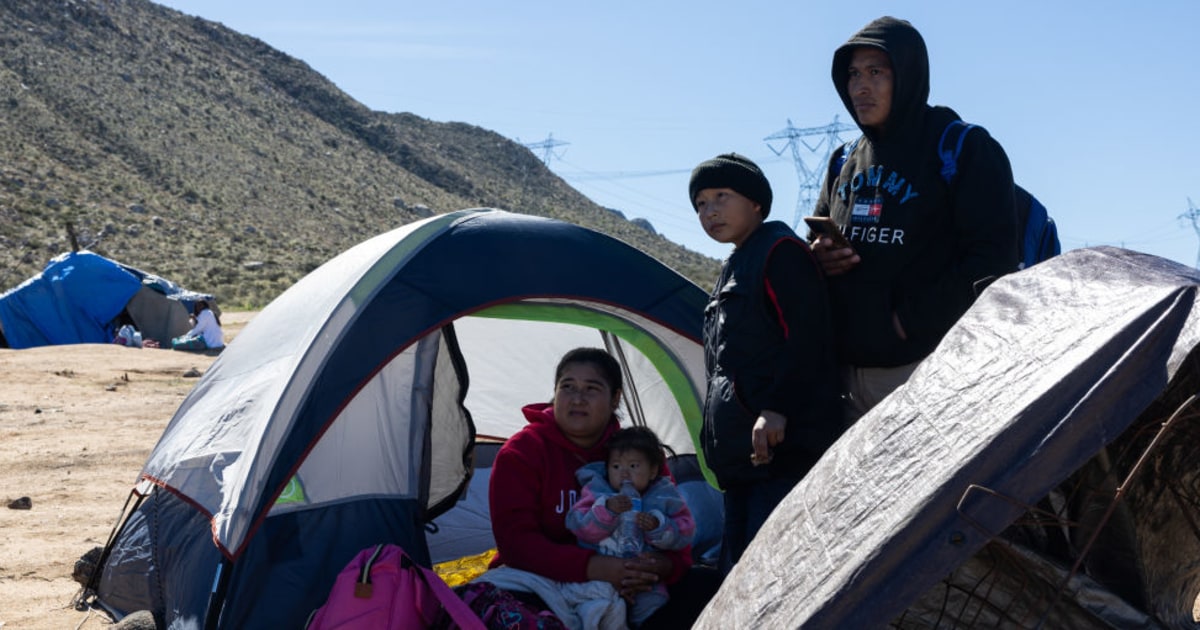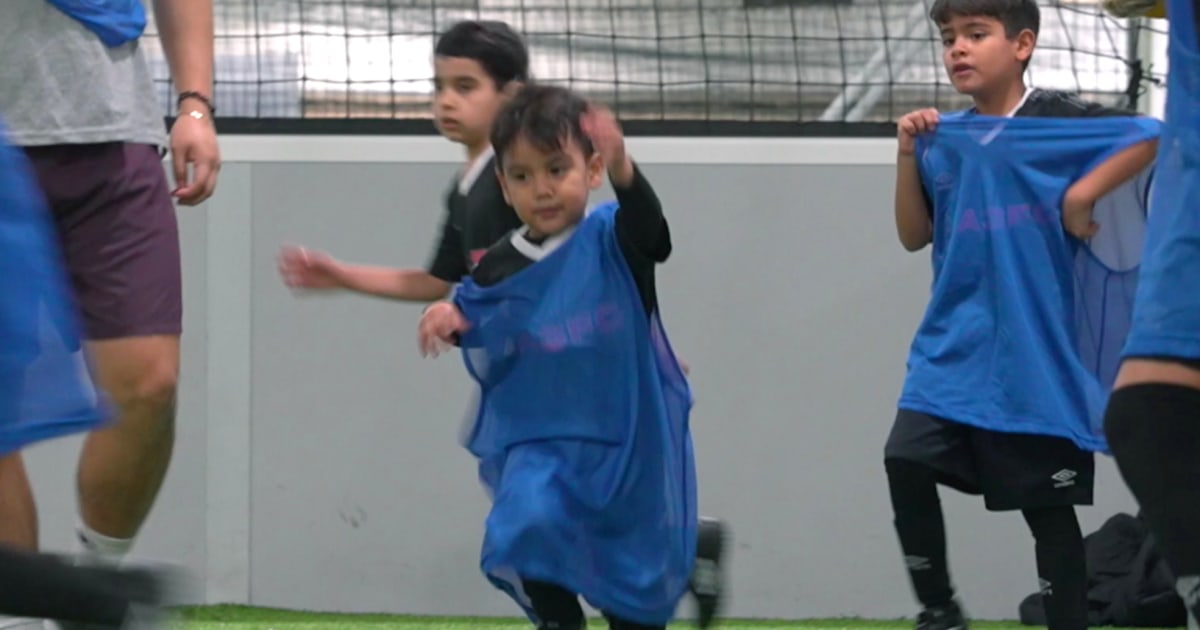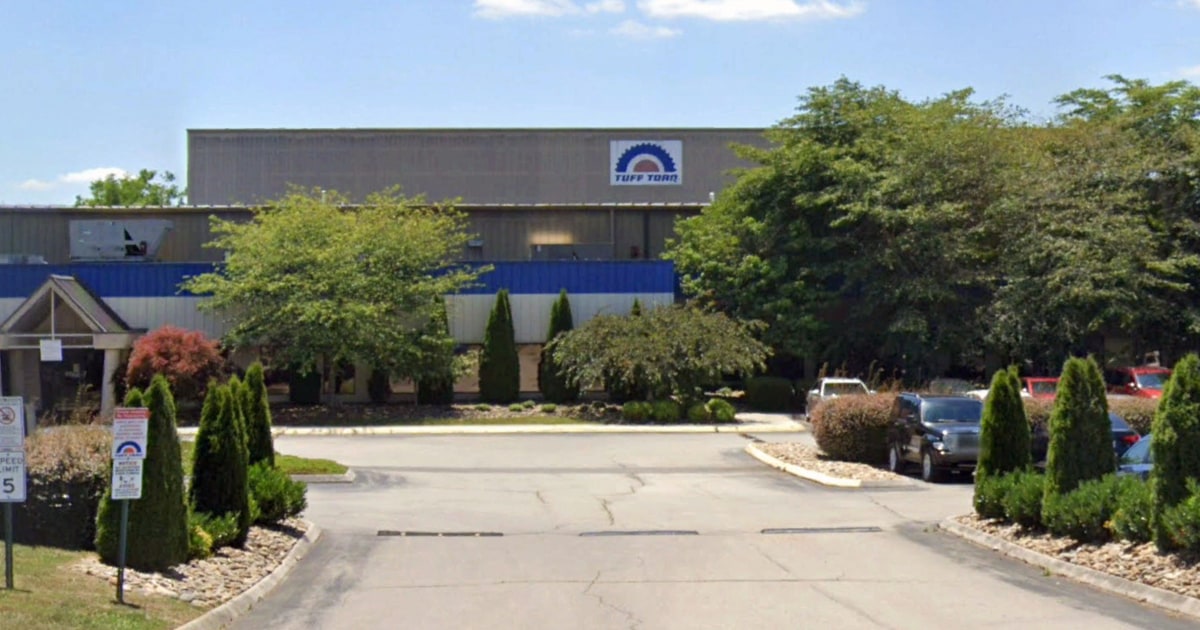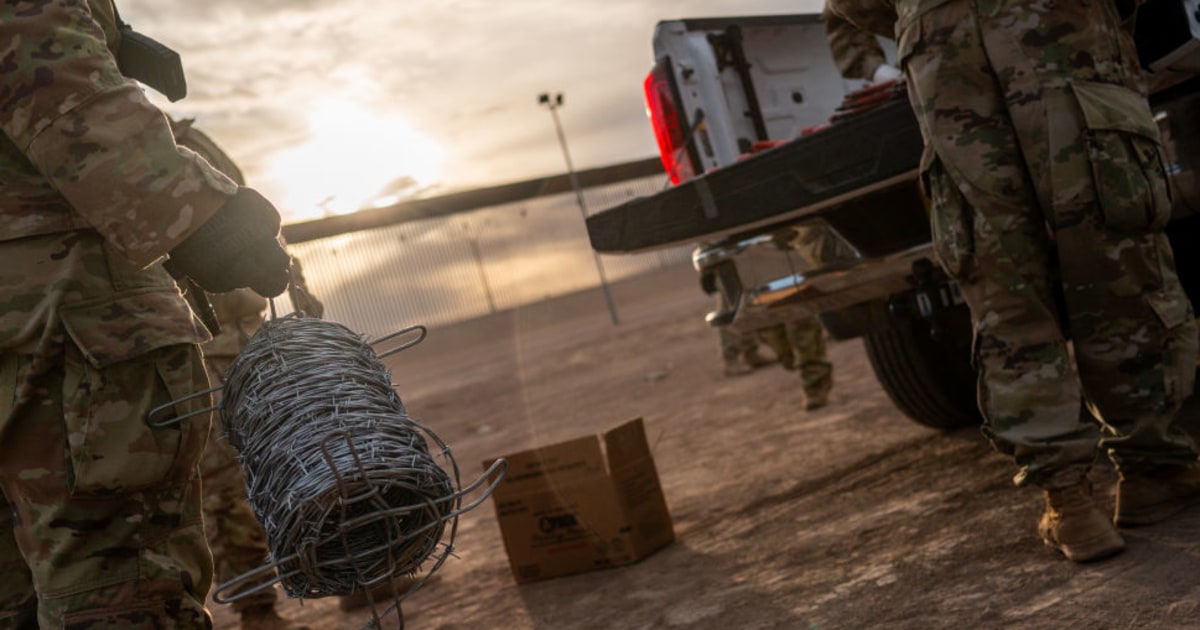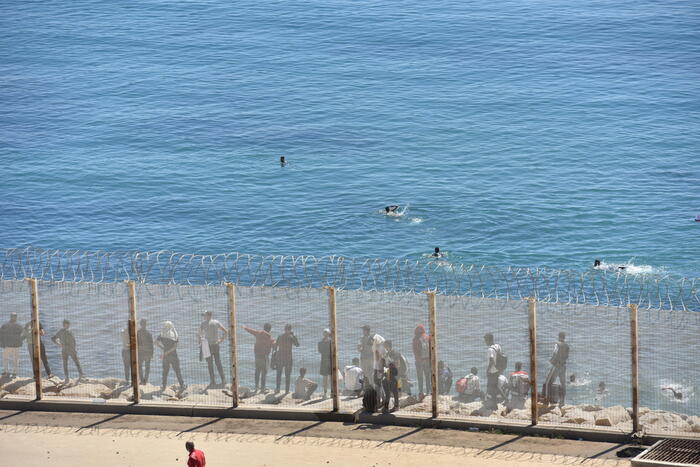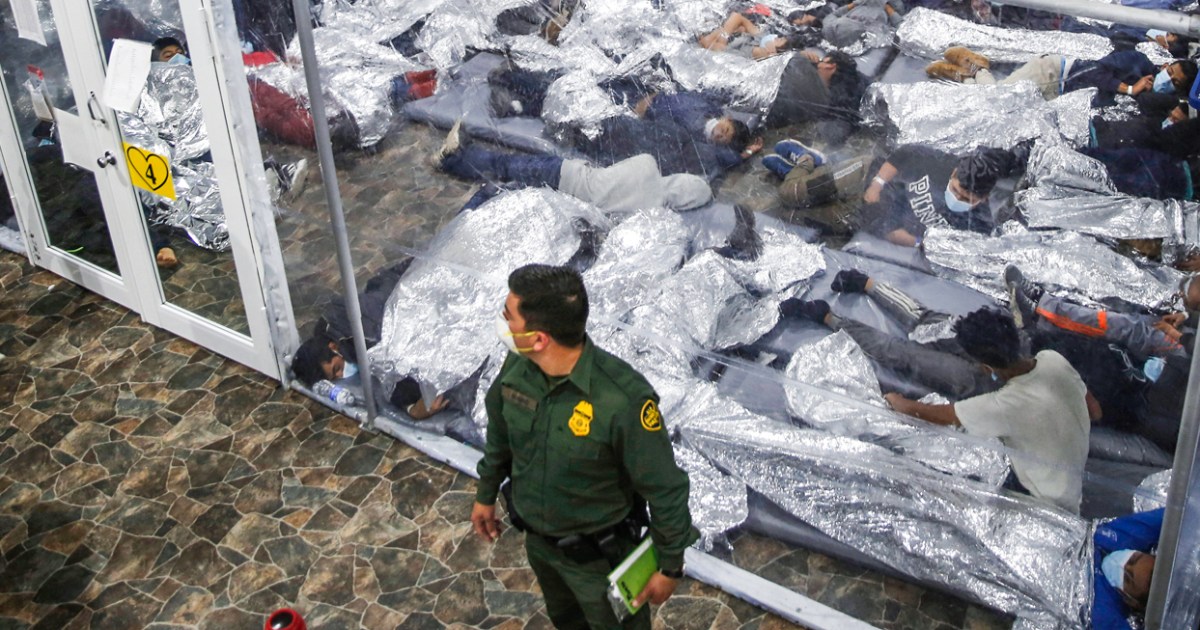"That's not fair".
Abdel is not called Abdel.
And he does not accept hot cloths either before what happened to him a year ago: "They should not have done it, they had no right."
The teenager bluntly and resentfully criticizes the returns of minors to Morocco — illegal, according to several court rulings — carried out in August 2021 in Ceuta after the border crisis that put the city in check.
The story of Abdel, who is now 17 years old, is bizarre.
But it is not the only one.
The boy was expelled from Ceuta just a year ago along with 54 other minors and has spent several months at home, in Fnideq (the former Castillejos of the Spanish protectorate).
him until he reappeared again in Ceuta on July 20.
In February, a court in the autonomous city ordered his repatriation to Spain;
in June, the Superior Court of Justice of Andalusia ratified the sentence, on which it is possible to appeal before the Supreme Court.
"He couldn't wait any longer," he says.
Mohamed (also a fictitious name), Abdel's fellow sufferer and in the same situation, remembers how they crossed back to Ceuta.
“We took advantage of the fog and swam in from Morocco to [the Juan XXIII area],” he explains, pointing to some yellow flats on a horizon dominated by the El Tarajal border crossing.
They went about three kilometers swimming a breaststroke, in the middle of the taró, the fog that the lift drags from the sea towards the isthmus that forms the city.
They swam that stretch to avoid being detected by the Moroccan or Spanish authorities, who would have sent them back to the starting point.
They could not limit themselves to crossing the breakwater from beach to beach through which between May 17 and 18 of last year between 10,000 and 15,000 people entered Ceuta,
The youngest Abdel, in Ceuta. PACO PUENTES
Different administrations calculate that up to 1,500 minors managed to sneak in those 48 hours in May, most of them alone.
During the first weeks, 1,177 were counted, according to the affiliations carried out by the Police in the following days.
More than a challenge, that was a blow to the reception system in the autonomous city, historically saturated.
After arduous negotiations with the communities, 16 autonomies agreed to take in some 200 children who had already been in the city since March 2020, when Morocco decreed the closure of the land borders with Spain due to the pandemic.
That was the biggest commitment that could be extracted.
In August of last year, more than 700 minors remained in Ceuta under the tutelage of the Administration, within a system prepared to accommodate just over 100 in optimal conditions.
The local government once again brought up an old demand, shared with Melilla: to use the bilateral agreement with Morocco, which should speed up the process but which requires compliance with Spanish and international legislation.
According to the account of the prosecutor of the Ceuta Area, Silvia Rojas, in a complaint filed in June against the Government delegate, Salvadora Mateos, and the Ceuta vice president with powers in matters of Minors, Mabel Deu, the Ministry of the Interior gave the green light to his expulsion on August 12.
Thus began the so-called "assisted returns" that circumvented the immigration law.
A total of 145 adolescents between 15 and 17 years old,
close to reaching the age of majority, were on a list to be repatriated, 55 were expelled until a court order stopped the returns, which were later suspended by the local Executive.
Between August 13 and 16, the minors were transferred in groups of 15 to the border and handed over to the Moroccan forces without the mediation of the families, as had been done until then in the regroupings that were legally carried out in Ceuta until 2020 .
More information
Ceuta returns to normal a year after the crisis with Morocco
“My mother started crying and I calmed her down by telling her that I was going to try to cross again,” recalls Abdel.
He called her from the same border post as soon as the bus left in the morning on August 15.
According to the testimonies collected by EL PAÍS, there was no device for warning relatives or monitoring of the family situation.
Not even prior contact with the parents, as can be deduced from the agreement, despite the fact that the list of minors had already been in the hands of the authorities since the 12th. Abdel describes the protocol: “They notified us a day before and the next day they took us, from there I called my family and told them what had happened and that they were going to return us”.
At Mohamed's house, the news also came as a surprise in a few days in which the parents, who had given up on their children returning, were holding their breath after the first returns.
"They didn't know anything," says the teenager.
“They took us to the border, they left us there for half an hour and they tested us for covid and they took us directly to Martil (about 10 kilometers from Tetouan) to be picked up by our families.”
According to organizations such as the Raíces Foundation, which took the returns to court, there was no monitoring of the returned children by the authorities.
"In the first months after the repatriation, absolutely no one contacted these children or these families to try to follow up, or to guarantee their well-being or to offer them an alternative to repatriation," protests Paloma García de Viedma, Estate Lawyer.
"As a result of the first judicial resolutions, some alternatives were offered, some families were contacted, but of course we cannot say that it was something that had the quality that should be required."
A SAMU Foundation monitor (right) with several Moroccan minors on La Ribera beach, in Ceuta.
PACO BRIDGES
The Tetouan delegation of the Moroccan National Cooperation (L'Entraide Nationale), a government agency for social assistance, supervised that procedure.
Representatives of the institution met, in a single meeting days before the returns began, with members of the Government of Ceuta and the Government Delegation to establish the device.
The children were taken to a meeting point —and not to a reception center—, in facilities dependent on the Ministry of Education, where they would be reunited with their families in Martil, a coastal town on the outskirts of Tetouan.
The deployment was merely temporary and from the beginning it was refused to transfer the boys to a specific device for the protection of minors, as stated by Mohsin Chergui, coordinator of the Association for the Protection of Children and the Awareness of the Family, a civil entity collaborating with National Cooperation and Spanish organizations such as Sevilla Acoge.
"They were provisionally concentrated there to identify them, identify their families or refer them to other centers or other territories [outside Tetouan]," he explains.
“As soon as a child was linked to the family, they were handed over to them.”
According to Chergui, "all the sectors that should have intervened, intervened" in the returns, although he denounces the procedure, which he considers illegal "hot or cold."
"You can't return a child," he says.
In Ceuta, the complaint in June by the Prosecutor's Office for an alleged crime of continued prevarication against the delegate, Salvadora Mateos, and the vice president, Mabel Deu, has generated movements in the Executive.
According to the prosecutor, both administrations orchestrated an operation to return at least 145 minors, knowing that the procedure did not comply with the regulations on immigration or the protection of minors.
Deu has lost the powers in minors, which has now been assumed by the Minister of Health, Alberto Gaitán, with the intention of not interfering in the judicial procedure.
In an interview in May, the vice president ratified the official position on the returns: "We were not repatriating, we were assisting the minors, returning them in an assisted manner."
The Minister of the Interior, Fernando Grande-Marlaska, whose department protected the process, went so far as to allege that it was "complementary legal interpretations."
In an interview granted to EL PAÍS in October 2021, the minister reiterated that the Ceuta authorities were competent for guardianship and, where appropriate, for assisted return.
After several rulings in Ceuta that ratify the illegality of the returns, from the Ministry they insist on adhering to the resolutions of courts and tribunals.
The setback last year has indeed led the Government of Pedro Sánchez, from the Ministry of Social Rights, to launch a mechanism that can alleviate the pressure on the border cities of Ceuta and Melilla and in the Canary Islands at times of humanitarian crisis, when the presence of migrant minors overwhelms the reception system.
From the autonomies, which must assume exclusive guardianship, children and adolescents can be almost automatically referred to places on the Peninsula.
"We are facing a problem that must be faced as a country and, therefore, it must be a matter that concerns the whole of Spain," says Gaitán.
"What we ask is that this is already a structural issue, that this mechanism stays for many years or that it be perfected as far as possible."
Ceuta currently hosts 302 minors, the vast majority of whom are Moroccan children who entered during the migration crisis.
The figure, far from last year's numbers, is even lower than that recorded before the pandemic, but it is still above the reception capacity of a city of some 86,000 inhabitants in which arrivals have not stopped.
Last month alone, the SAMU Foundation registered at least twenty children.
At least five had returned after being returned in 2021. Among them were Abdel and Mohamed.
Mohamed's expulsion, in fact, should have been stopped at the same border after the judge ordered the transfers to be halted as a precautionary measure in the face of a complaint by the Neighborhood Coordinator and the Raíces Foundation.
From the left, Ilyas, Walid and Nourdine, in Algeciras (Cádiz). PACO PUENTES
Ilyas Abghouni, who has already turned 18 and now lives and works temporarily in Algeciras (Cádiz), was about to be handed over to the Moroccan authorities in El Tarajal.
But as soon as they got him off the bus, they put him back on the bus to take him back to the rest of the kids.
"I was very, very lucky," he says calmly, sitting in a cafe near the port where the ferries arrive from Ceuta, where other kids try to escape the city by doing
riski
(method they use to hide on the ferries that travel to the Peninsula).
After coming of age this year in Ceuta, he formalized his residence permit and was able to travel to the Peninsula with the organization Volunteers for Another World.
Along with two other colleagues, Nordin and Walid, who have also become legal adults in Ceuta after crossing during the 2021 crisis, he spends his nights selling phone cards to travelers returning to Morocco in Operation Crossing the Strait.
The three of them send home half of the 64 euros they earn working from eleven at night to eight in the morning.
“First we found work in the fields in Jerez (Cádiz), picking the grapes.
When it ended, we found work here,” says Walid.
"This job is better, easier."
His aspiration, however, is to end up between ovens or stoves:
50% off
Subscribe to continue reading
read without limits
Keep reading
I'm already a subscriber


